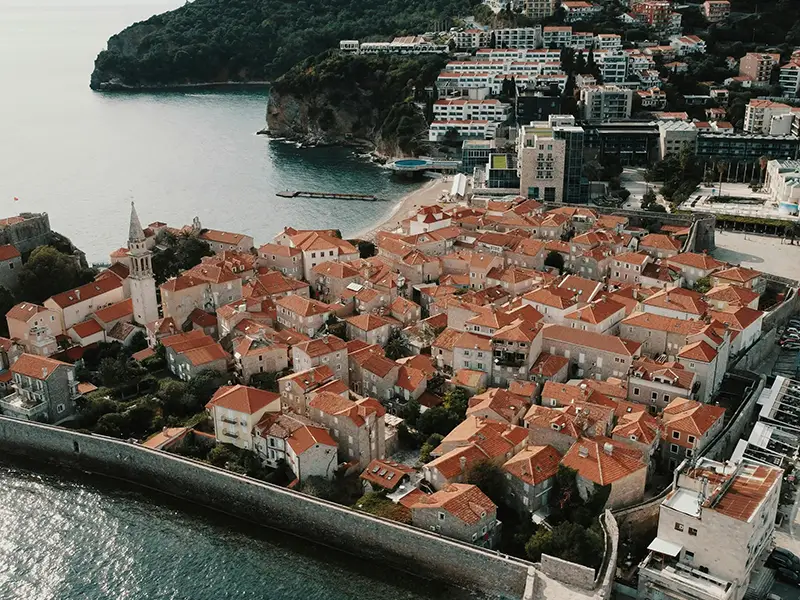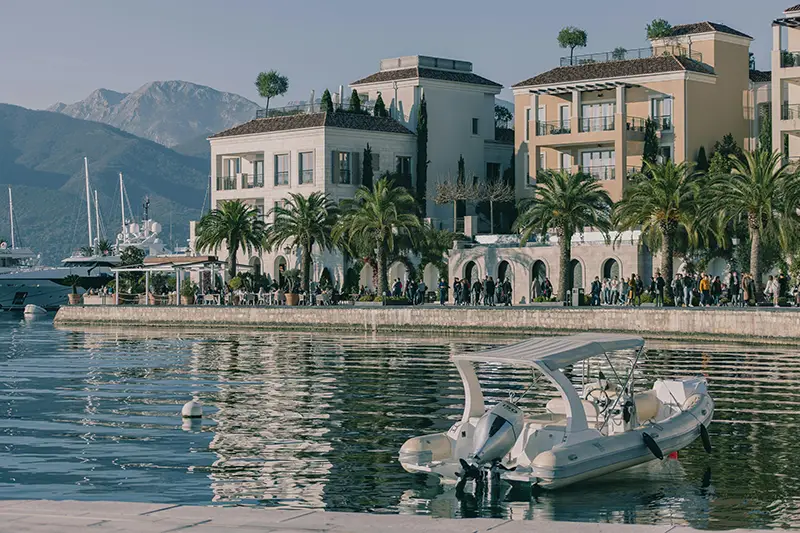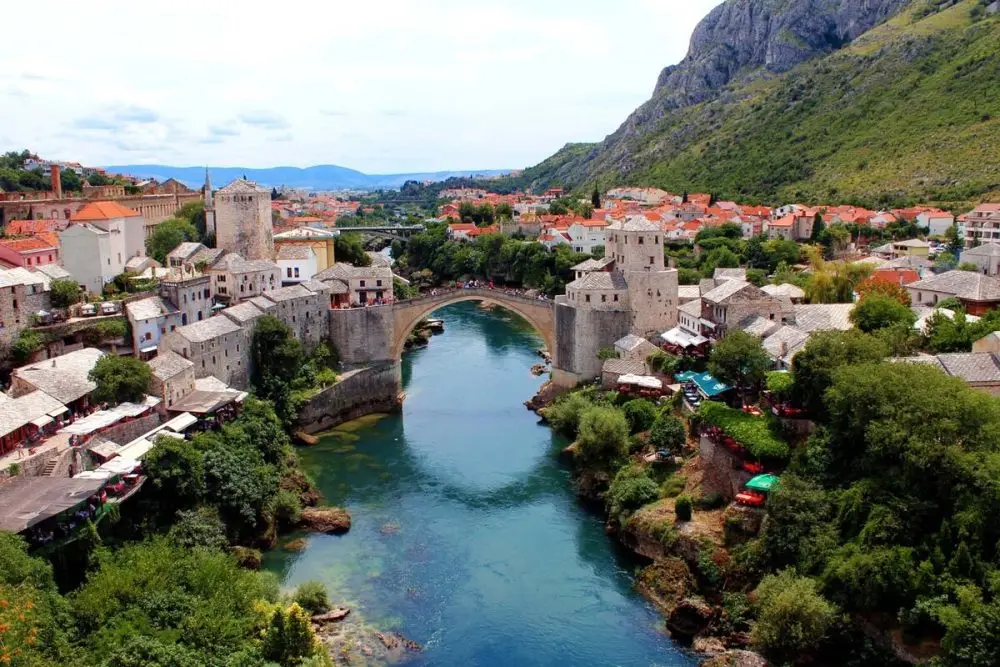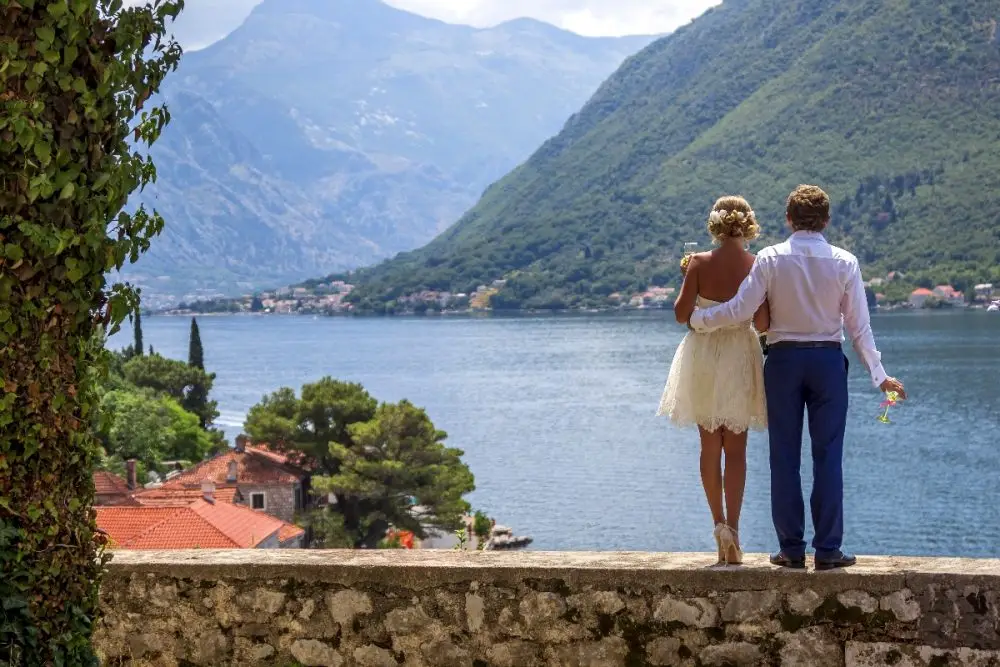The combination of natural beauty and investment opportunities creates ideal conditions for living and holidaying. Property in Montenegro is a unique opportunity to become a part of a true Balkan fairy tale. Over 300 kilometres of coastline and 100 beaches – choose the right place for you.

An in-depth look at property in Montenegro
The country is characterised by high potential for investors and incredible conditions for permanent residence. The stunning climate with more than 240 days of sunshine a year, the clear waters of the Adriatic and favourable tax laws make the state one of the most attractive corners of Europe for buying property.
The average cost per square metre here at the end of 2023 was around 2000 euros, which is significantly lower than in neighbouring countries such as Croatia and Italy.
Why buy a flat in Montenegro?
Affordable accommodation by the sea – about Montenegro. The country attracts attention by the variety of offers: here you can find both modern flats with sea views and cosy flats in historical centres. Compared to other European countries, the cost of the area remains affordable, and the rate of price growth in the market is steadily increasing.
According to Global Property Guide research, the growth in property prices in the mountain kingdom in 2024 was 6.5%, which demonstrates the positive dynamics of the market.
Simplified process for foreign buyers: how to buy a flat in Montenegro
The country is actively developing its tourism and investment infrastructure, which allows it to generate significant rental income. In addition, the process of buying a flat is simplified for foreign citizens: the absence of restrictions on the purchase of housing for foreigners and the possibility of opening a residence permit for investments in real estate from 250,000 euros make this region particularly convenient for investment.
Property in Budva – the pearl of the coast
Perhaps the most famous city in the Balkan oasis, it is particularly popular with tourists and investors. Owning property here opens up access to one of the best holiday resorts in the country. Everyone will be able to find an option to suit any preferences – from elite villas with panoramic sea views to cosy apartments in the city centre.
Variety of offers
Budva attracts with its diversity: seafront promenades, restaurants, cultural events and historical sights make the city an ideal place for both living and renting. This is one of the main reasons why metres here remain in demand.
Investing in property will be an excellent investment. The average rental rate for an apartment in Budva during the tourist season reaches 100-150 euros per day.
Property in Montenegro for living: more than just a house
 The climate is mild and the scenery is inspiring. The infrastructure is also top-notch, from educational institutions to medical centres, attracting not only retirees but also families with children. According to the World Health Organisation, the state is among the top ten countries with the best environmental situation in Europe.
The climate is mild and the scenery is inspiring. The infrastructure is also top-notch, from educational institutions to medical centres, attracting not only retirees but also families with children. According to the World Health Organisation, the state is among the top ten countries with the best environmental situation in Europe.
The tranquillity and comfort of the Mediterranean
Moving to such a paradisiacal place is a chance to change the hustle and bustle of big cities for peace and quiet. Most of the residents enjoy nature and do sports. Everything here is created for a healthy and pleasant living. The average life expectancy in the country is 77 years, which is due to the ecologically clean environment, quality products and a calm rhythm.
Property in Montenegro from developer or secondary: what to choose?
The choice always depends on the buyer’s goals. Buying a new building gives the opportunity to get modern technology and high quality construction, and often includes bonuses such as parking spaces and gated areas. For example, new residential complexes in Tivat and Budva often offer gated club areas and swimming pools for residents.
Secondary housing, on the other hand, offers already established infrastructure and the possibility of immediate occupancy. Both options have their advantages.
For example, developer apartments can be ideal for those looking for a modern home with minimal renovation costs. Secondary properties, on the other hand, can be located in more established neighbourhoods where the necessary infrastructure, including schools, shops and medical facilities, is already in place.
Montenegro property investment: why is it profitable?
There are several reasons that all potential investors should definitely analyse.
Stable rental income
The Balkan fairytale is becoming a magnet for investors, and there are many reasons for this. The average rental yield is 5-7% per annum, and during peak seasons, revenues can increase significantly due to increased tourist traffic.
Favourable tax legislation
Moreover, the property acquisition tax is only 3% and taxes on rental income range from 9% to 15%, which is one of the lowest rates in Europe. Demand for properties is growing steadily, which means that the cost of housing will only increase. Investing here is not only a great way to preserve capital, but also to increase it.
How to get Montenegro’s Golden Visa through buying a property?
For those who want not just to purchase properties, but also to get additional benefits, there is the Golden Visa programme. The purchase of properties opens access to a residence permit and, later, citizenship. To obtain a Golden Visa, you need to purchase a property worth at least €450,000 in one of the priority regions of the country.
Advantages of the Golden Visa
“Montenegro’s Golden Visa allows free movement within the Schengen area and opens up many business and educational opportunities. The visa application process is simple and transparent, making this programme even more attractive for those considering a new place to stay or invest. The state plans to become a member of the European Union from 2025, which further increases the attractiveness of this programme.

It’s time to act
 Whether it is a cosy flat on the coast or a villa overlooking the Adriatic, buying a property in this country opens the door to a world of tranquillity, beauty and new opportunities. Don’t miss the chance to be part of this story – property in Montenegro is already waiting for its owner.
Whether it is a cosy flat on the coast or a villa overlooking the Adriatic, buying a property in this country opens the door to a world of tranquillity, beauty and new opportunities. Don’t miss the chance to be part of this story – property in Montenegro is already waiting for its owner.
 en
en  ru
ru  de
de  ar
ar  es
es  nl
nl  hi
hi  fr
fr  it
it  pt
pt  el
el 












